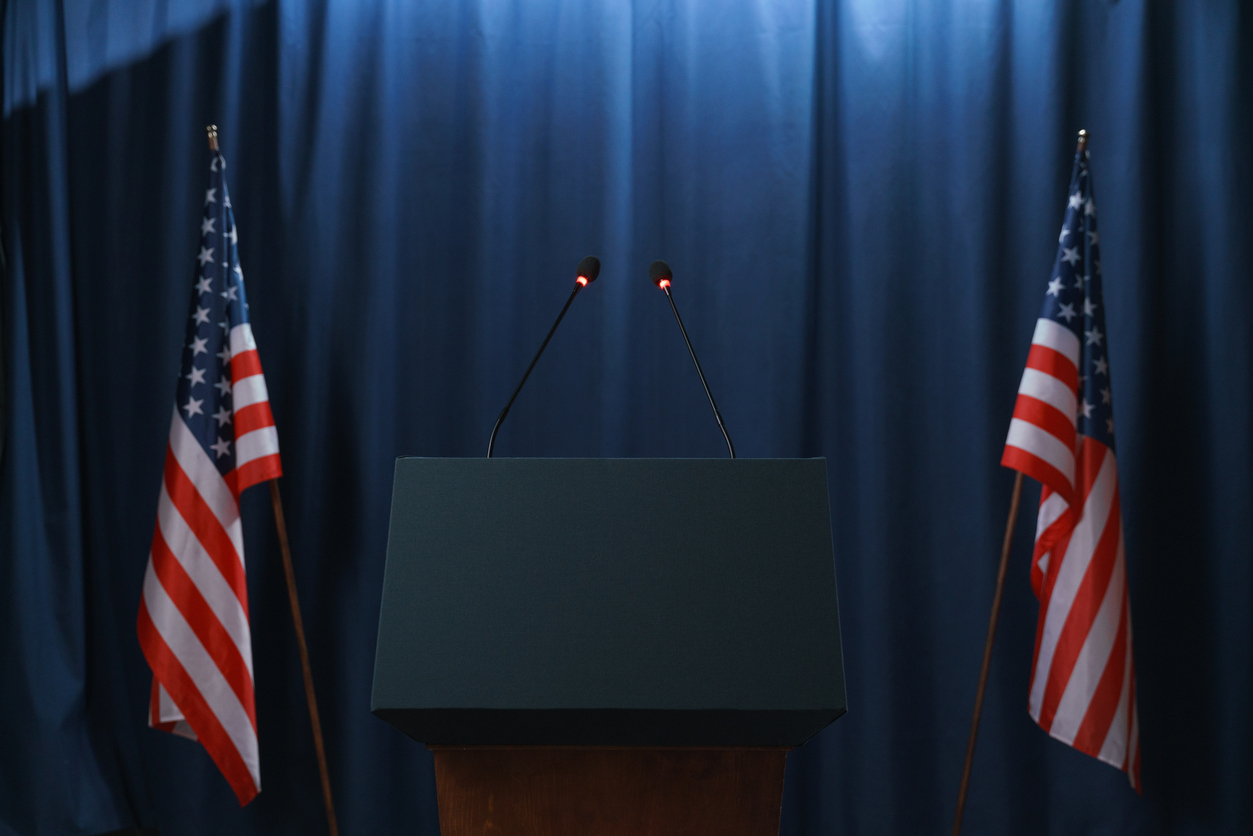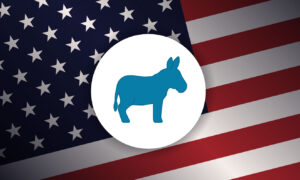The Scoop: PR takeaways from Harris-Trump debate
Plus: Penn to no longer comment on most global issues; Princess Kate marks new social era for Royal family.

Donald Trump and Kamala Harris met on the debate stage for the first – and possibly last – time Tuesday night as part of the build up to November’s presidential election.
The Trump campaign insists it won the debate. But by most other accounts, Harris dominated the evening by finding a way to get under her opponent’s skin. It was a stark contrast from his initial debate with President Joe Biden earlier this year.
“They disagreed fiercely on abortion and the economy, immigration and the war in Ukraine. But throughout the night, Mr. Trump found himself in a defensive crouch, relitigating his record rather than picking apart hers,” the New York Times reported.
“The contrast was apparent even on mute. She smiled. He glowered. He spoke more, but she dictated the terms of the evening.”
Voters taking part in a Fox News Digital panel voted 12 to 5 that Harris won the debate.
“He is still in his head basically trying to run against Joe Biden,” one voter said.
Why it matters: With less than two months until Election Day, Harris and Trump have work left to do to claim undecided voters. Heading into the debate, a national poll conducted by the New York Times and Siena College showed Trump up one percentage point, 48%-47%. There are similar tight races in key battleground states, including a virtual tie in Pennsylvania, which hosted the debate.
In such a tight race, it was incumbent on the candidates to find a way to have their messages resonate. During the debate Harris spoke about issues such as abortion, the economy, immigration. She called her opponent “weak and wrong on national security.”
At times, though, she felt comfortable letting Trump do some of the work for her.
“Part of Vice President Harris’ debate plan was to goad Trump into saying things that could become viral social media clips, advisers said earlier, and the debate suggested that strategy paid off,” Reuters reported.
NBC News quoted an anonymous Republican fundraiser as saying, “Trump is so angry he can’t clearly get his message across… She’s cool, calm and able to provoke him. I was stressing hearing it.”
One of the biggest assertions that Trump leaned into is the falsehood that Haitian migrants in Springfield, Ohio, are eating people’s pets.
“In Springfield, they’re eating the dogs. The people that came in, they’re eating the cats,” Trump said. “They’re eating… they’re eating the pets of the people that live there.”
Moderator David Muir interjected, saying the city manager of Springfield told ABC news that there were no credible reports of pets being “harmed, injured or abused by individuals within the immigrant community.”
“People on television say, ‘My dog was taken and used for food,’ so maybe he said that and maybe that’s a good thing to say for a city manager,” Trump said in protest of the fact-check.
Harris sat back, smiled at the camera and watched it all unfold.
Moments after the debate, Harris received a social media endorsement from Taylor Swift. In her Instagram post, Swift stressed a need to officially announce her endorsement following a deepfaked version of her “falsely endorsing Donald Trump’s presidential run” which Trump himself shared.
“It really conjured up my fears around AI, and the dangers of spreading misinformation. It brought me to the conclusion that I need to be very transparent about my actual plans for this election as a voter,” she wrote. “The simplest way to combat misinformation is with the truth.”
Swift attached a photo of herself holding her cat and signed the endorsement “Childless Cat Lady,” a clear rebuke of JD Vance’s comments. Given Swift’s stature and popularity, this could have a major impact on turnout, especially among young women.
The Harris campaign is leaning into the Swift endorsement – selling friendship bracelets similar to those popularized during Swift’s Eras concert tour. The bracelets have already sold out.
Editor’s Top Reads
- The University of Pennsylvania has rolled out a policy that it will no longer make statements in response to world events that don’t directly affect the institution. The plan follows a rough year for Penn and several major colleges and universities that came under fire for their handling of issues related to global current events, namely the Israel-Hamas war. Former Penn President Liz Magill resigned in December 2023 after what critics called a disastrous testimony on Capitol Hill about the handling of antisemitic incidents on campus. As an organization, you can’t be everything to everyone so it’s vital to think strategically about what to say when. In its statement to the Philadelphia Inquirer, Penn notes that “it’s not the role of the institution to render opinions – doing so risks suppressing the creativity and academic freedom of our faculty and students.” As a university, Penn also has to consider the needs of its donors, who can sometimes view the world through very different lenses than college students. Penn noted that, “Responding to one issue inevitably highlights issues and groups that receive no message – omissions that carry their own meanings, however inadvertent,” Penn administrators wrote. Of course, putting out a policy like this one doesn’t mean the questions are going to stop coming in from reporters. But the university now has something it can point to that carries a little more weight than a non-returned email or a “no comment.”
- The Princess of Wales turned to Instagram on Monday to share with the world that she’d completed chemotherapy. The video featured Kate hugging her husband Prince William and the couple’s three children. While not an unfamiliar approach for tens of millions of IG users, the soft, touching video – complete with a once taboo cheek kiss – marked a new era of social media for Britain’s royal family, known historically for the late Queen Elizabeth II’s “never complain, never explain” mantra. Beyond representing a break in tradition, it also suggests an understanding of the contemporary media landscape by Buckingham Palace where you have to get out in front of the kind rumors and speculation it experienced earlier this year prior to Kate’s diagnosis. Since then, Kate has used social media sparingly to show cancer’s impact on her life during her monthslong treatment journey, but most updates were void of much more than bare facts, leading to rumors about her overall health. This more transparent approach is leading to positive headlines and allowing the Royal family to take more control of the narrative. Perhaps just as importantly, it helps humanize them.
- ESPN suffered an unforced error when it failed to mention soccer legend Alex Morgan in an autogenerated story recap of the final game of her career. The World Wide Leader in Sports produced the 215-word writeup using its new generative AI technology, which aims to provide incremental coverage the underserved National Women’s Soccer League and Premier Lacrosse League. In the case of Morgan’s last game, the piece is factually accurate; it provides a nuts-and-bolts rundown of the outcome and the standard elements of any straight game recap. ESPN also published a separate piece that focuses on Morgan and the role she played in women’s soccer. But anyone looking at the recap wouldn’t have received any of the additional context about Morgan or the fact she was retiring. ESPN has stressed that a human editor would review each AI-generated recap to “ensure quality and accuracy.” While that may have happened here, the editor may also have lacked context and understanding of the game. ESPN went back and manually updated the story the next day after receiving criticism on social media. This is just another reminder that AI alone isn’t a solution, it’s a tool that’s only as valuable as the human beings behind it. All content, no matter who or what’s producing it, should have multiple human touchpoints to ensure it hits all the right notes and nothing is missing upon initial release.
Casey Weldon is a reporter for PR Daily. Follow him on LinkedIn.








Really insightful read! The part about Taylor Swift’s endorsement and its potential influence on younger voters was fascinating. I’m looking forward to seeing how this affects the race as we get closer to the election. -Macy Barshick, writer/editor for Platform Magazine